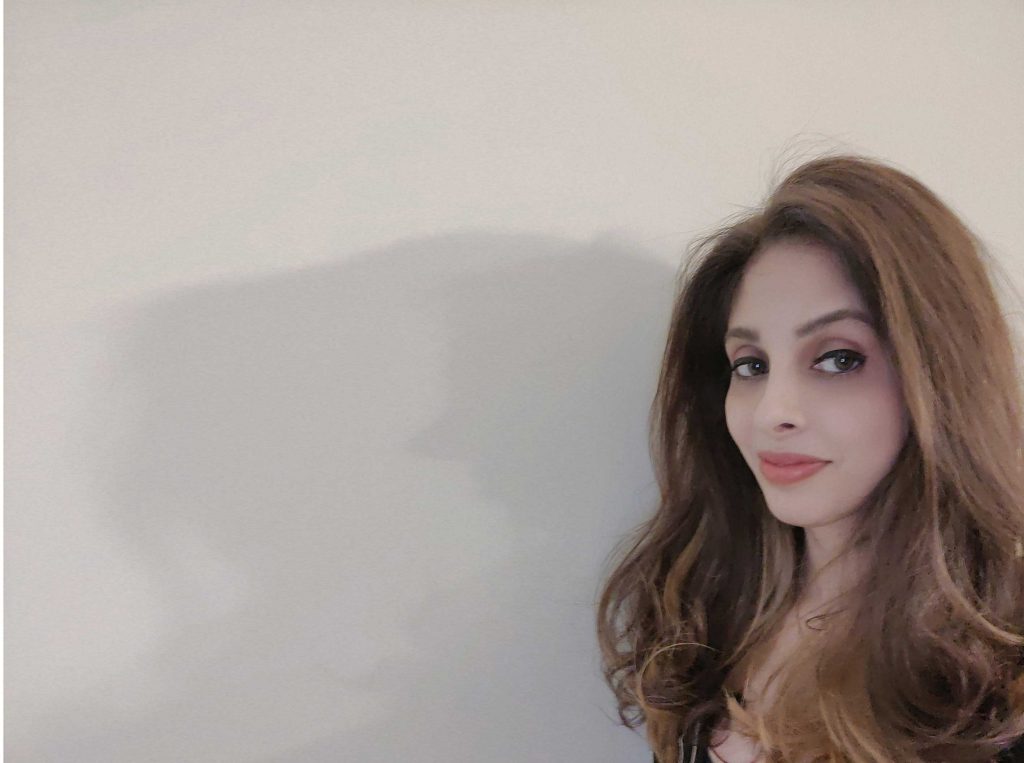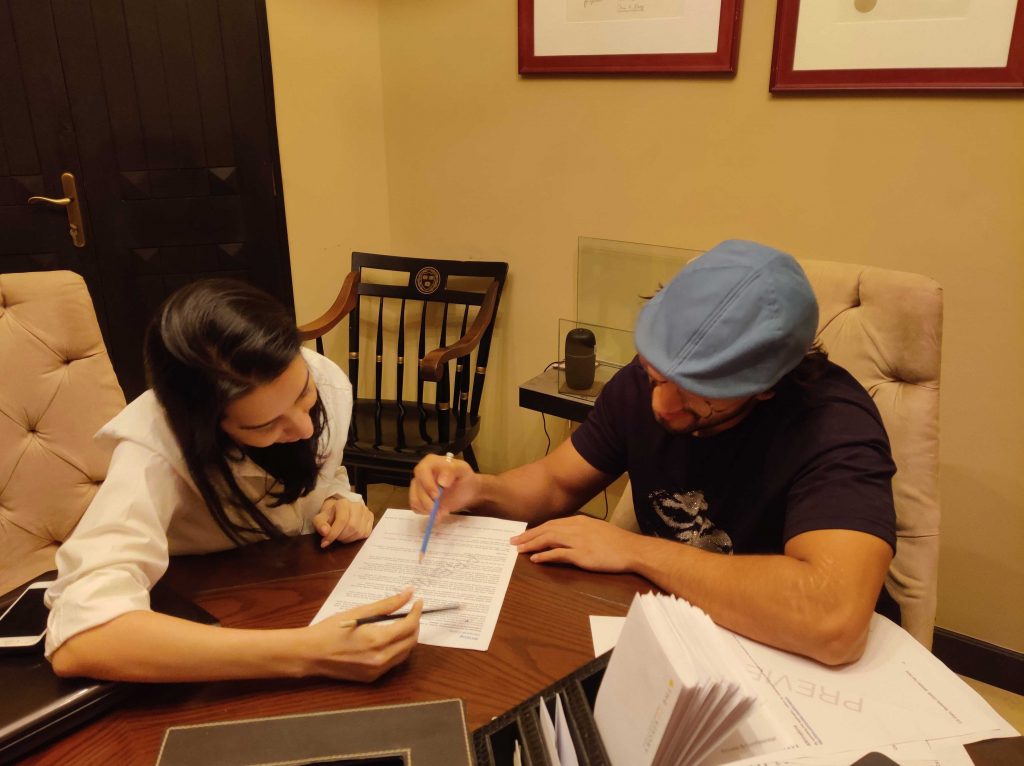 Zil Malik, the founder and Chief Executive Officer of The Edvisory is a double Harvard graduate, a certified US admissions counselor, and a published authority in the field of US higher education. Zil tells us what led her to counseling, her inspiration, everything that The Edvisory offers and so much more.
Zil Malik, the founder and Chief Executive Officer of The Edvisory is a double Harvard graduate, a certified US admissions counselor, and a published authority in the field of US higher education. Zil tells us what led her to counseling, her inspiration, everything that The Edvisory offers and so much more.
What made you want to become an educational counselor? And what is your educational background?
Zil Malik: Having served as a Harvard alumni interviewer, I became cognizant of a void in the market for independent educational consulting services. While there are a lot of study abroad agencies, I wanted to offer bespoke, conflict-free consulting services, coupled with a number of value added services that nobody in the market was offering. I am actually an attorney in terms of my educational background. I have a bachelor’s degree in International Relations from Harvard College and a Juris Doctor from Harvard Law School. I served as a writing tutor while I was at Harvard, and also attained a college counseling certification from Rice University. I worked as a corporate attorney for several years before starting up The Edvisory. I think having a corporate law background is a huge advantage since we are constantly helping students brainstorm ideas for setting up their businesses and NGOs, and it’s helpful to have work experience in client-oriented, writing-based professions.
Where did you get your inspiration from?
ZM: While I was interviewing for Harvard, I realised that most of the students that were assigned to me were good students, but less than ideal applicants. There is a difference.
How was the experience of working as a Harvard alumni interviewer?
ZM: It was a good learning experience. It made me realise how much I enjoyed working with teenagers.
Which university is the most popular amongst the students and their parents, and why?
ZM: Overall, I would say UCLA is the most popular in terms of the number of applicants, largely because of its location and campus. Boston University, University of Toronto, and LSE are also very popular.
 How do you manage to attract students from all over the world?
How do you manage to attract students from all over the world?
ZM: To be honest, while we have always had students from South Asia, the UK, and the Middle East, I never expected to be working with students from places like Poland, Thailand, and South Africa. Having said that, I have grown up all over the world, so my personal network is global. I think this is probably the main reason why we have such a diverse group of students. Our Dubai office has become the hub for our international applicants, allowing us to service students from North America, Africa, Europe, the Middle East and Asia.
You spoke about the boot camp process in a recent interview. Can you tell us about that?
ZM: Our boot camps are essentially essay writing and application workshops that we hold for students in the summer before they apply to college. By the time our students finish the boot camps, they have finished much of their application work and are usually far ahead of their peers, even before their senior year begins.
Please share with us an example of how you helped coach or mentor someone. What improvements did you see in the person’s knowledge or skills?
ZM: Recently, we worked with a girl from Poland. We had counselled her brother two years earlier. During our preliminary meetings, which happened two years before she applied to college, we explored a number of different niches for her – niches are the areas we theme college applications around. While her father really wanted her to do something business or IT related, we honed in on art since we felt her artistic talent would allow her to stand out more. She spent two summers developing her fine arts portfolio with senior artists in Karachi and was able to exhibit her work in some unique venues, including the main public square in Warsaw. She was recently admitted Early Decision to Cornell, and she got in over other students who had higher grades and SAT scores. This was largely because she focused on the right niche area and developed it to an exemplary level. This is just one example from this year, but we have several examples of students, who often come to us at a much later stage, and are focusing on the wrong types of things or applying for the wrong programs – remember in the US, you can change your major several times so it helps to apply for an underrepresented area. We adjust their focus, develop depth in the right niche area, and help them get into “above range” universities.
How do you organise, plan, and prioritise your work?
ZM: Thankfully, I am surrounded by a wonderful team who makes everything manageable. Amirah Muneer handles scheduling and operations, and other counselors oversee discrete application components, so I can focus on overseeing the writing related aspects of our students’ applications. Scherazade Jamali manages our graduate counseling division, and Asim Gul and Azka Ahmed are our in-house, test prep instructors. In terms of how I prioritise my own work, it’s largely seasonal – from June to December, my priority is my college applicant students, and from January to May, I tend to spend more time working with our early bird students (largely O-Level students).
How is your typical day as a counsoelor?
ZM: Mornings are usually spent essay editing, and the second half of the day is spent in consultations. We schedule calls with overseas students during the nights and on weekends. It really is non-stop! Every day is different though and our students all have varied interests – as a result, I do not mind the workload since I am constantly learning something new from our students.
How would one evaluate your counseling program?
ZM: I think it’s our students who are the ultimate arbiters of how well we do our jobs, so I primarily rely on their feedback. The fact that they send their friends, siblings, and relatives to us is the biggest vote of confidence.
 What do you think is the role of the school counselor in relation to teachers, parents, administrators and other counselors?
What do you think is the role of the school counselor in relation to teachers, parents, administrators and other counselors?
ZM: Our students come from schools where most members of the senior class engage private counselors. This does not mean we displace school counselors, teachers, and administrators since all of these parties play distinct roles in the application process that we cannot supplant. The school counselor, in particular, is meant to be the central coordinator for everything the school sends to universities with regards to applications including transcripts, recommendations, language waivers, etc. We coach our students on how to manage their relationships with their school counselors. While we do not directly work with school counselors, we have to ensure that our students are being presented to colleges in the best light possible.
Describe a goal you achieved through your counseling, and how you managed to achieve it.
ZM: We have hit a number of milestones in terms of the number of Ivy League and Oxbridge acceptances that our students attain. However, what brings me the most professional satisfaction is working with students from a variety of backgrounds. A few years ago, we established the Qamar Hasib Memorial Scholarship, which allows us to work with deserving Pakistani students on an entirely pro-bono basis. I have asked school administrators from middle-income schools to nominate deserving students for this award, but I feel we can always cast the net wider.
What do you offer that others don’t?
ZM: Since we offer boarding school, college, and graduate school counseling services, we are uniquely situated to work with students at nearly every phase of their educational careers. Also, we have an ever-expanding range of supplementary services such as boot camps, ideation workshops, and in house test prep. Just this year, we have started offering specialised tutoring for Oxford and Cambridge interview preparation. So I feel we offer more breadth and depth in terms of our services. Also -and this is important- we offer a level of discretion that is unparallelled in our profession. You will never see us posting pictures of our students, their SAT scores, or their college acceptances on our social media sites. Certain schools prohibit their students from working with outside counselors, so we cannot compromise their privacy. The fact that we do not engage in these practices inculcates trust with our students and their families; we never cast our students’ achievements as our own.
 What is the feedback like?
What is the feedback like?
ZM: Again, almost all of our students are referred to us by past students and their families – that is the most important metric in terms of feedback.
How do you think education in Pakistan has changed over the years?
ZM: The biggest issue is that there has not been enough change. We are still doing O-Levels and modular A-Levels, when the rest of the world is doing IGCSEs and linear A-Levels. Given the tuition culture, there is no real financial incentive for private schools to change anytime soon. I grew up in the Middle East and did the IBDP diploma. Hence, I am a huge proponent of the IB system. I would love to see more high schools offer the IB diploma, as A-Levels are not for everyone. There do appear to be more IB schools on the horizon and I hope these institutions make proper investments in teacher training, as our students deserve options.
Can you tell us about the different programs that you run?
ZM: We help students apply to boarding schools, colleges, and graduate programs in the US, the UK and Canada. We also offer in-house test prep services, and hold an annual application boot camp for our college applicant students.
Why do you think students would come to you and not stick to their own educational institutions?
ZM: Quite simply, they get far more attention. Even the best school counselors are usually overstretched and the number of students per counselor is far higher than our ratios. Hence, we are able to “go deep:” we direct videos, procure internships, and manage athletic recruiting. Also, we start working with many of our students years before they apply to college, whereas most school counselors start working with students during A-Levels.
INTERVIEW: MEHR KASSIM
PHOTOGRAPHS: COURTESY ZIL MALIK
![]()











































